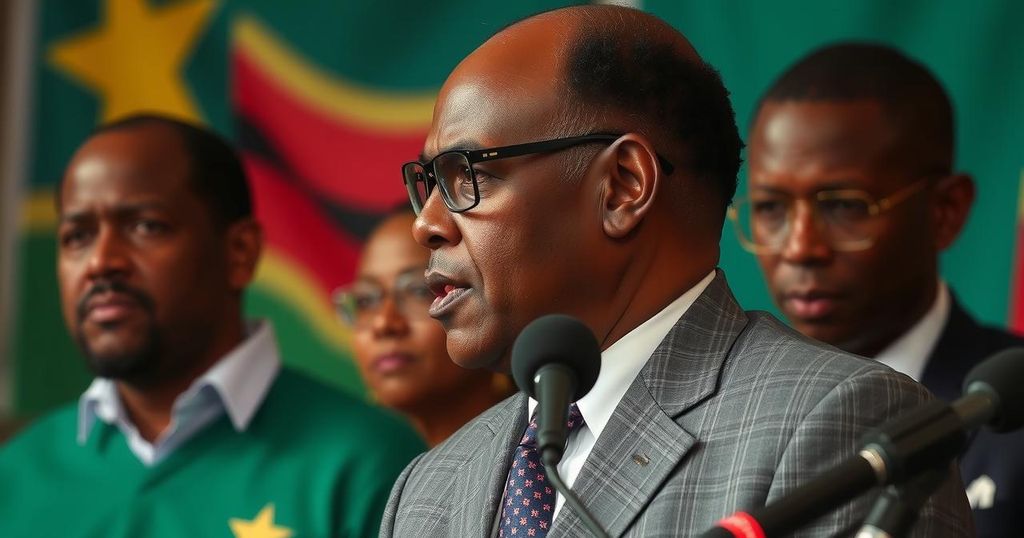Mozambique’s Supreme Court has upheld the results of a disputed presidential election, allowing Daniel Chapo of the ruling Frelimo party to assume office, amid allegations of electoral misconduct and ongoing protests. Leading opposition figure Venâncio Mondlane plans to challenge the results, while independent observers raised concerns about the electoral process’s fairness. Mozambique faces significant socio-economic challenges and climate impacts alongside political instability.
On Monday, Mozambique’s Supreme Court affirmatively upheld the results of a highly contested presidential election, which confirmed the victory of Daniel Chapo of the ruling Frelimo party. This decision came in the aftermath of widespread protests that resulted in over 100 fatalities and claims of significant electoral irregularities. In light of the court’s ruling, Daniel Chapo is set to be inaugurated as president next month, as Frelimo continues its dominance since the country’s independence from Portugal in 1975.
Venâncio Mondlane, the leading opposition candidate, has signaled intentions to dispute the election outcome and has urged citizens to mobilize against perceived corruption and electoral fraud. Frelimo representatives have staunchly denied all allegations of misconduct, although independent observers, including a mission from the European Union, reported witnessing irregularities such as the “unjustified alteration of election results.” Mozambique’s political landscape remains critical as its population, currently grappling with severe economic hardships and climate crisis repercussions, also faces an ongoing insurgency in the northern regions that threatens essential development projects.
Mozambique, a southern African nation with a population of approximately 33 million, has been under the governance of the Frelimo party since it gained independence from colonial rule in 1975. The recent presidential election has been marred by accusations of electoral fraud and unrest, further complicated by economic challenges and environmental disasters. Observers have expressed concerns about the legitimacy of the election process, which took place amid rising tensions and social upheaval stemming from both political and economic instability. The country’s ongoing struggle with the climate crisis, particularly following Cyclone Chido, adds another layer to its challenges, exacerbated by insurgent activities in various regions.
In summary, the recent ruling by Mozambique’s Supreme Court to affirm the contested election results serves to reinforce the longstanding political control of the Frelimo party despite allegations of electoral fraud. As Daniel Chapo prepares to take office next month, the atmosphere remains charged with uncertainty, particularly as opposition figures persist in denouncing the integrity of the election. Mozambique’s socio-economic difficulties and environmental crises further complicate this political situation, highlighting the need for a resolution to ongoing public discontent.
Original Source: www.nytimes.com






